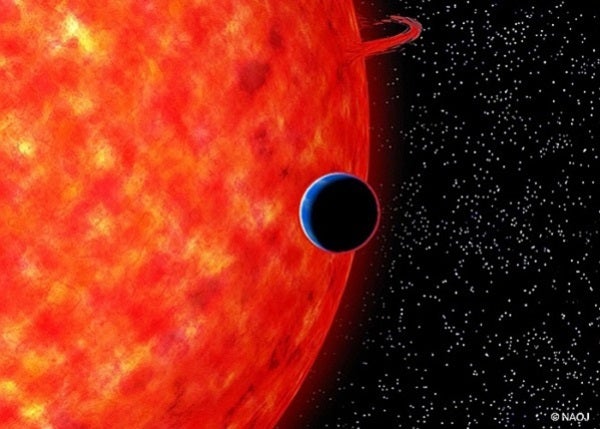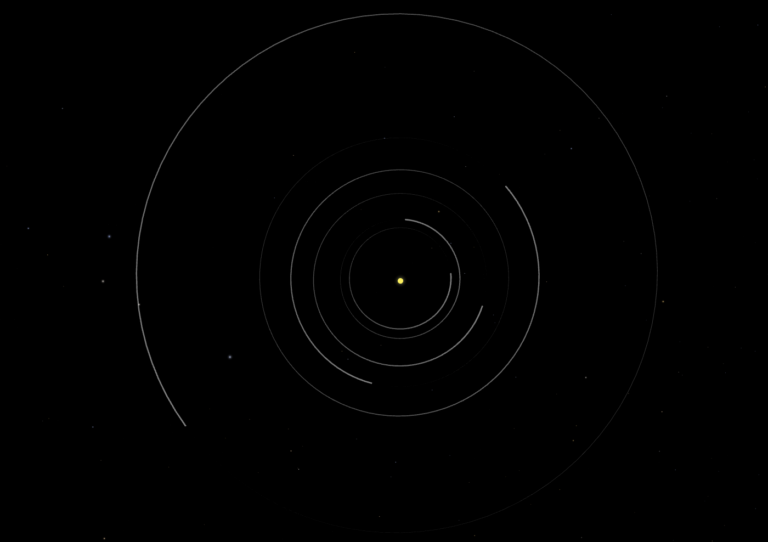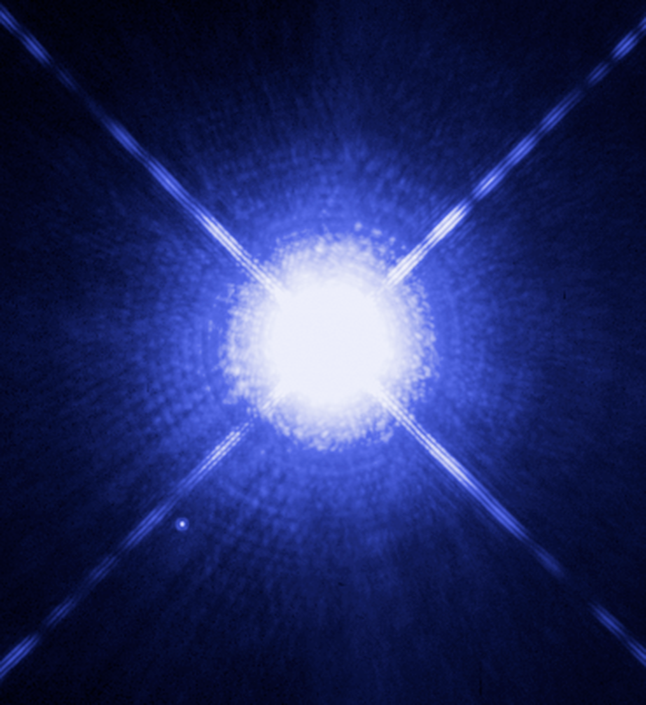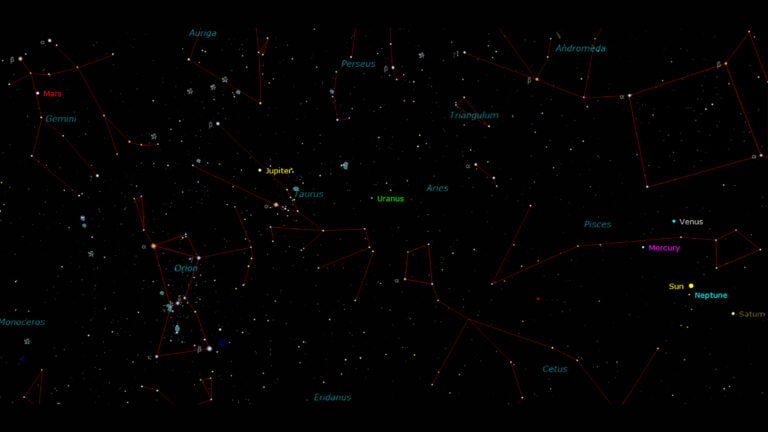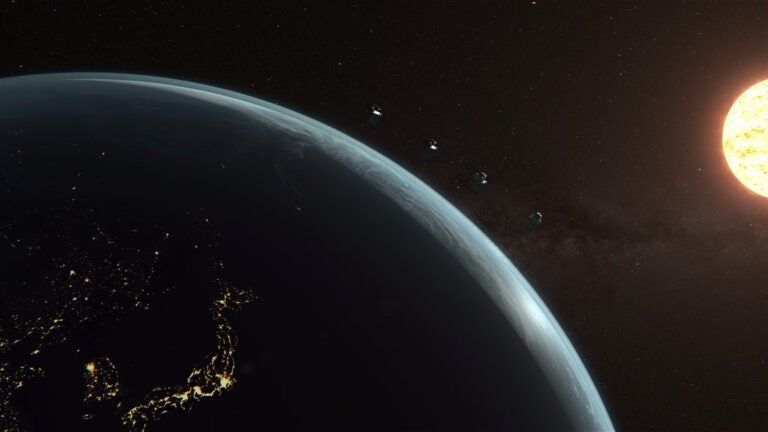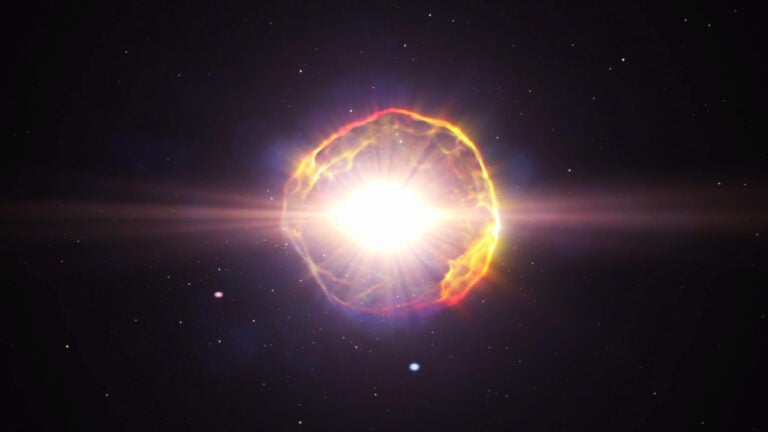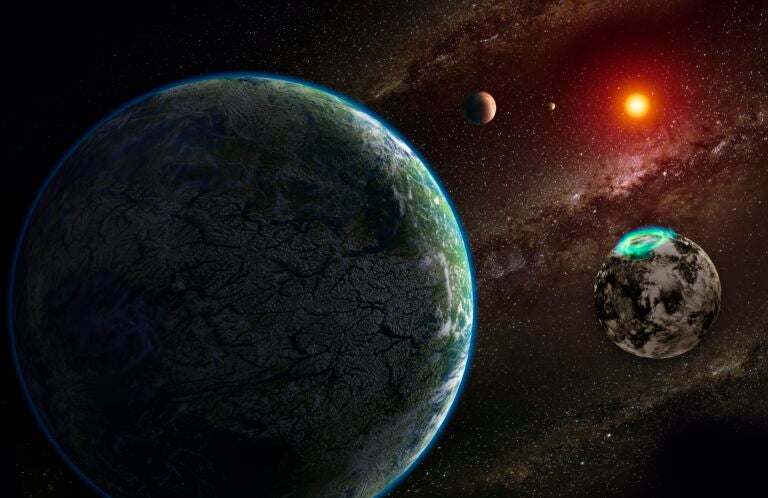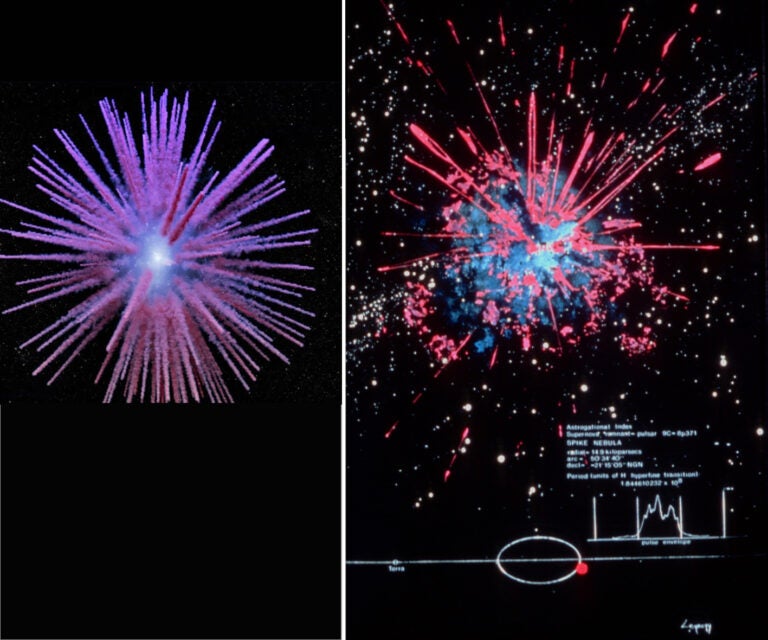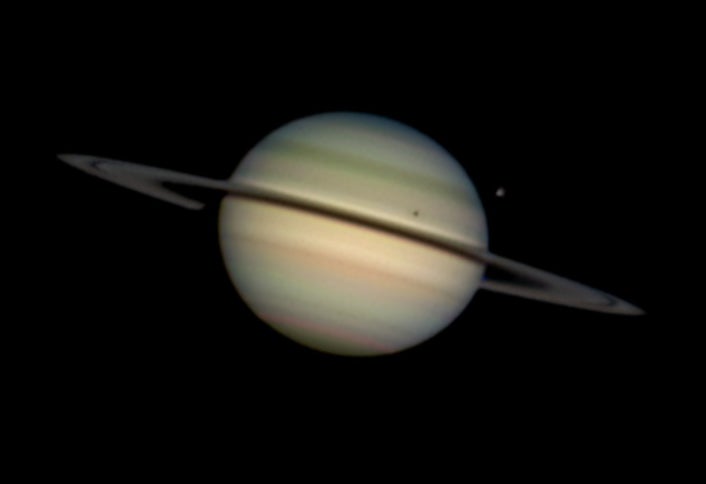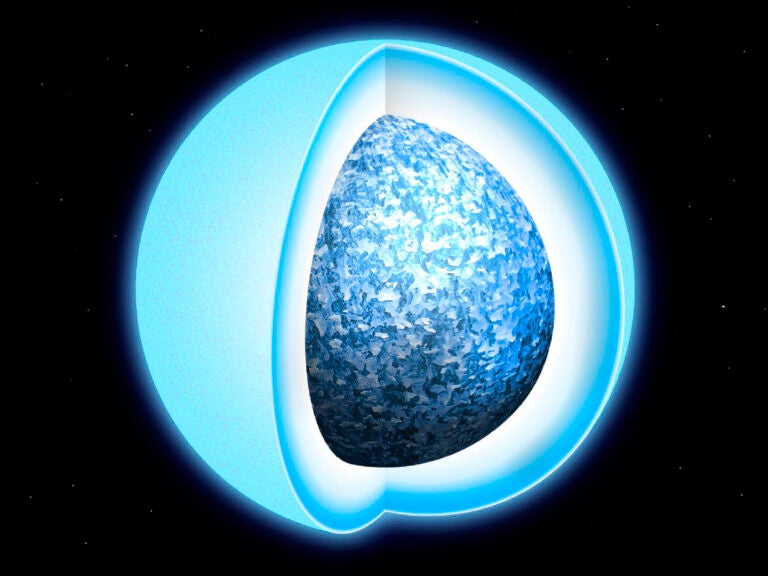Transits occur when an exoplanet passes in front of its parent star, reducing the amount of light we receive from the star by a small fraction. When the orbit of an exoplanet is aligned just right for transits to occur, astronomers can measure the planet’s size at different wavelengths in order to generate a spectrum of its atmosphere. The spectrum then reveals the substances present in the planet’s atmosphere, and therefore its composition. This measurement is most often performed using infrared light, where the planet is brightest and most easily observed. During the last few years, researchers have been probing the atmospheres of several small exoplanets with large ground and space-based telescopes, but they have found it challenging to determine their composition using this method. This is either because the planets have clouds, which obscure the atmosphere, or because the measurements were not sufficiently precise.
At four times the size of the Earth, GJ 3470b is a transiting exoplanet closer in size to our own planet than to the hot Jupiters — about 10 times the size of Earth — that so far make up the majority of exoplanets with well-characterized atmospheres. Astronomers led by Diana Dragomir of the University of Chicago have followed up on a discovery by a different group, whose results tentatively hinted at the presence of Rayleigh scattering in the atmosphere of GJ 3470b. Dragomir’s team acquired and combined transit observations from all of LCOGT’s observatory sites — Hawaii, Texas, Chile, Australia, and South Africa — to conclusively confirm the detection of Rayleigh scattering for GJ 3470b.
The result is significant for several reasons. GJ 3470b is the smallest exoplanet for which a detection of Rayleigh scattering exists. While this planet is also believed to be cloudy or hazy, the measurement tells astronomers that the planet has a thick hydrogen-rich atmosphere below a layer of haze that scatters blue light. Indeed, the sky is blue on GJ 3470b. Moreover, the planet orbits a small red dwarf star, which means it blocks a large amount of light during every transit, making the transit easier to detect and the planet more easily characterized. Finally, this measurement is the first clear detection of a spectroscopic feature in the atmosphere of an exoplanet that was made only with small — 1-meter and 2-meter — telescopes. The team has also supplemented the LCOGT data with observations obtained from the 1.5-meter Kuiper Telescope in Arizona.
Dragomir said that “this detection brings us closer to understanding the nature of increasingly smaller exoplanets through the use of a novel approach that allows us to probe the atmospheres of exoplanets even if they are cloudy.” At the same time, the result highlights the role that meter-sized telescopes can play toward characterizing the atmospheres of these worlds.

